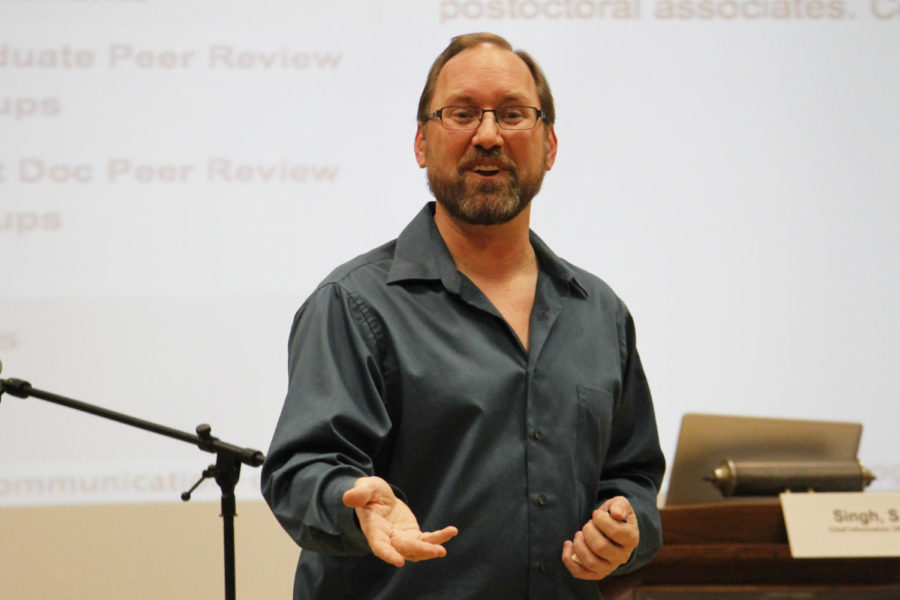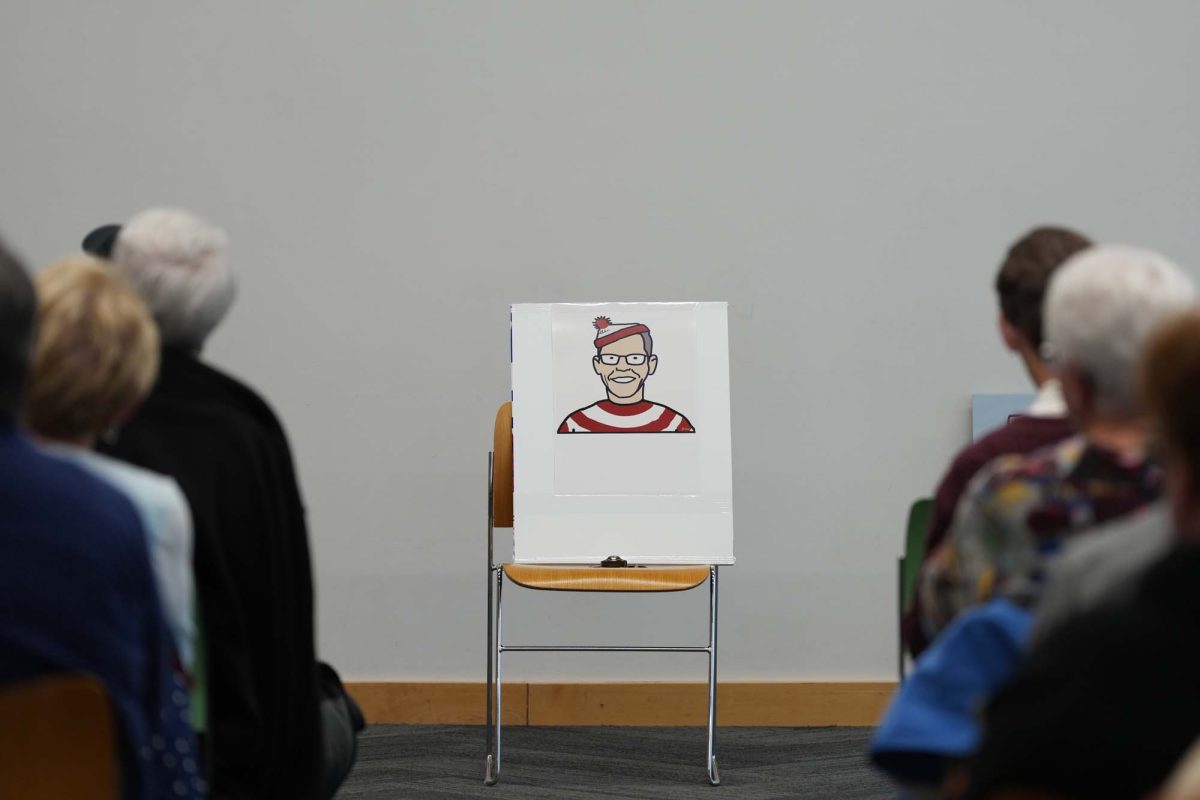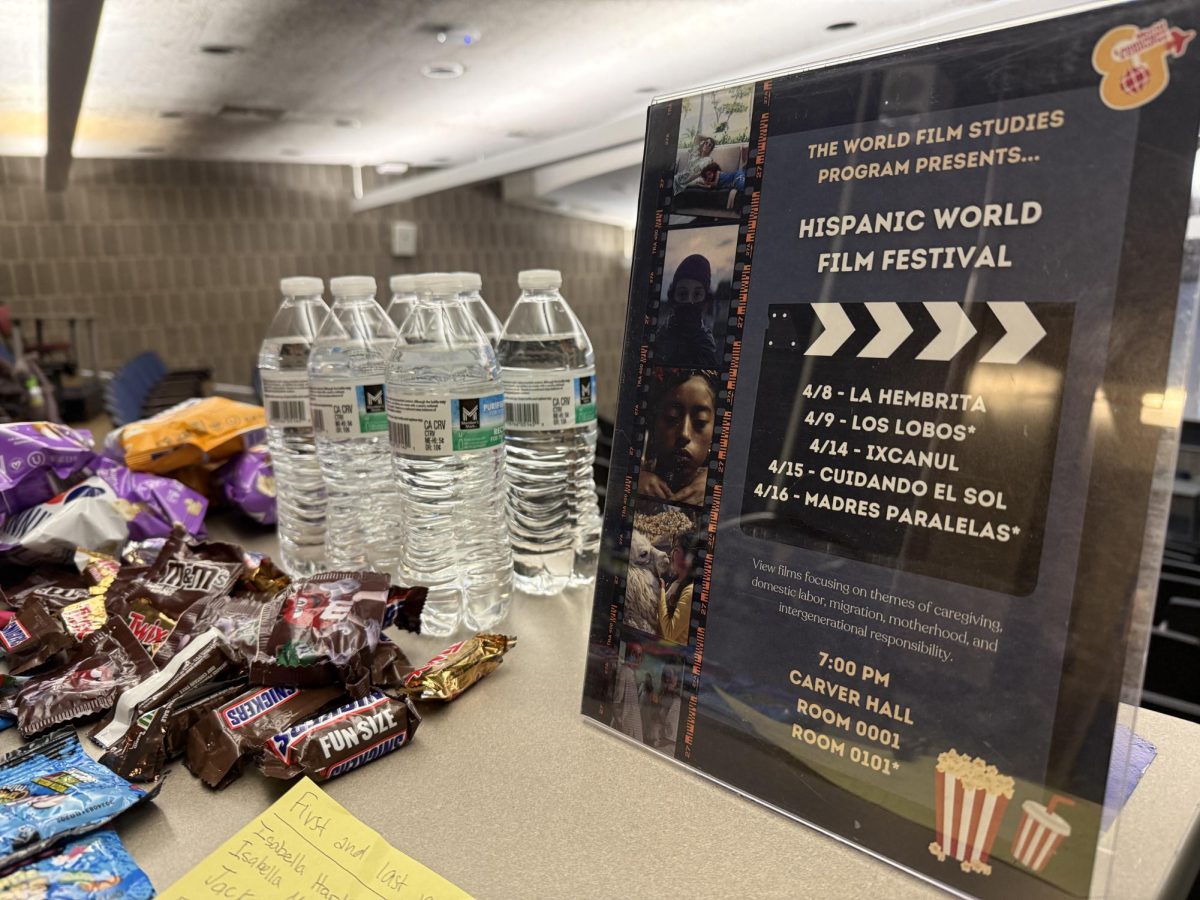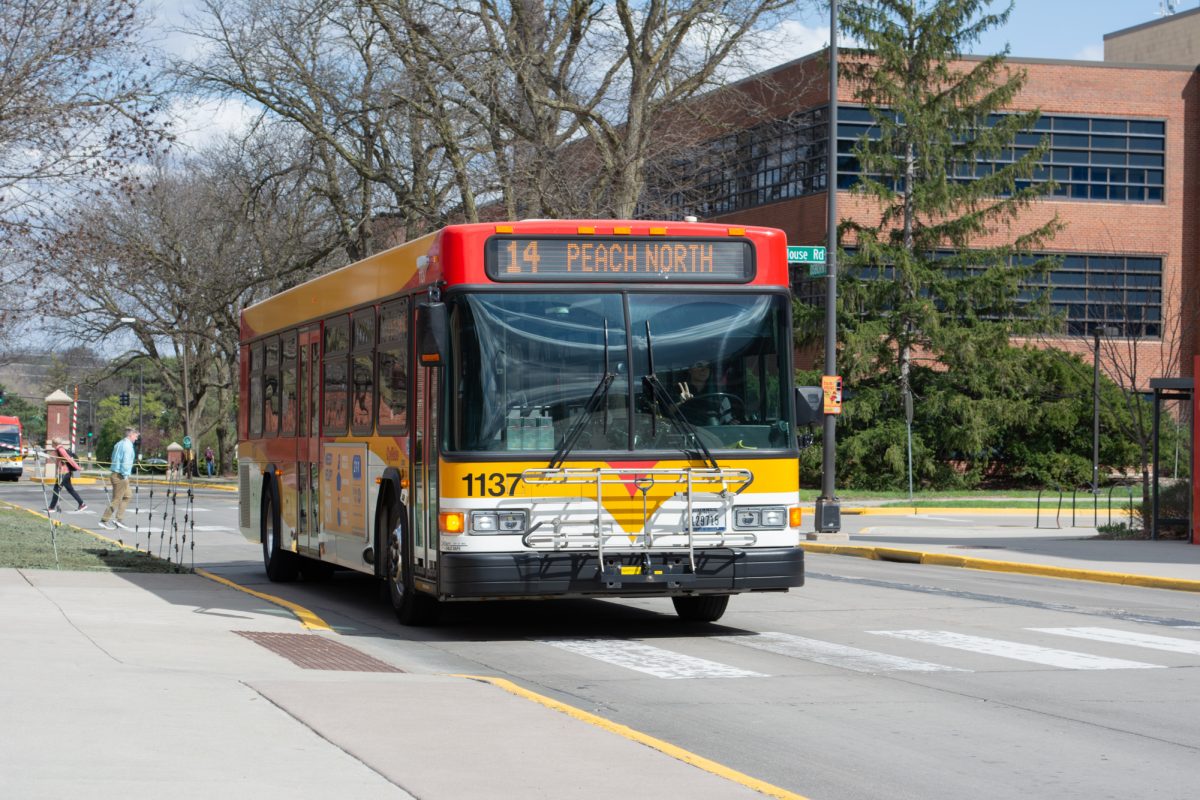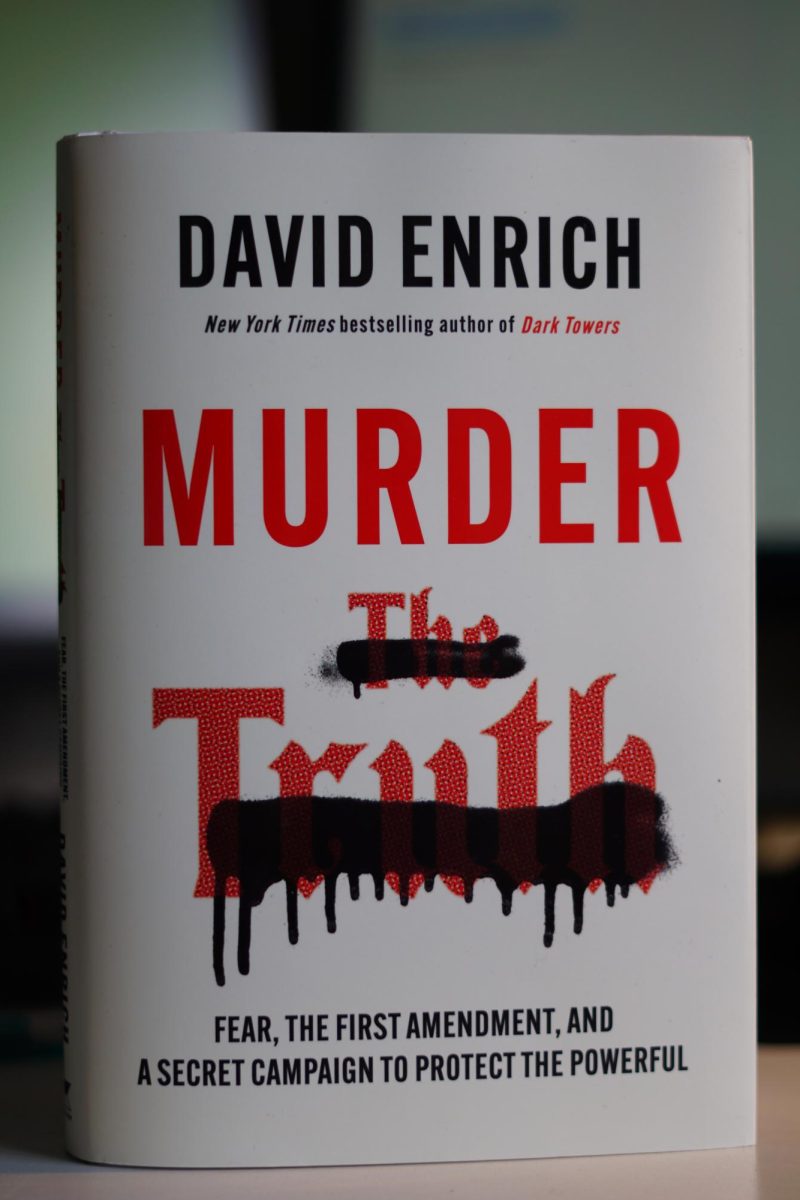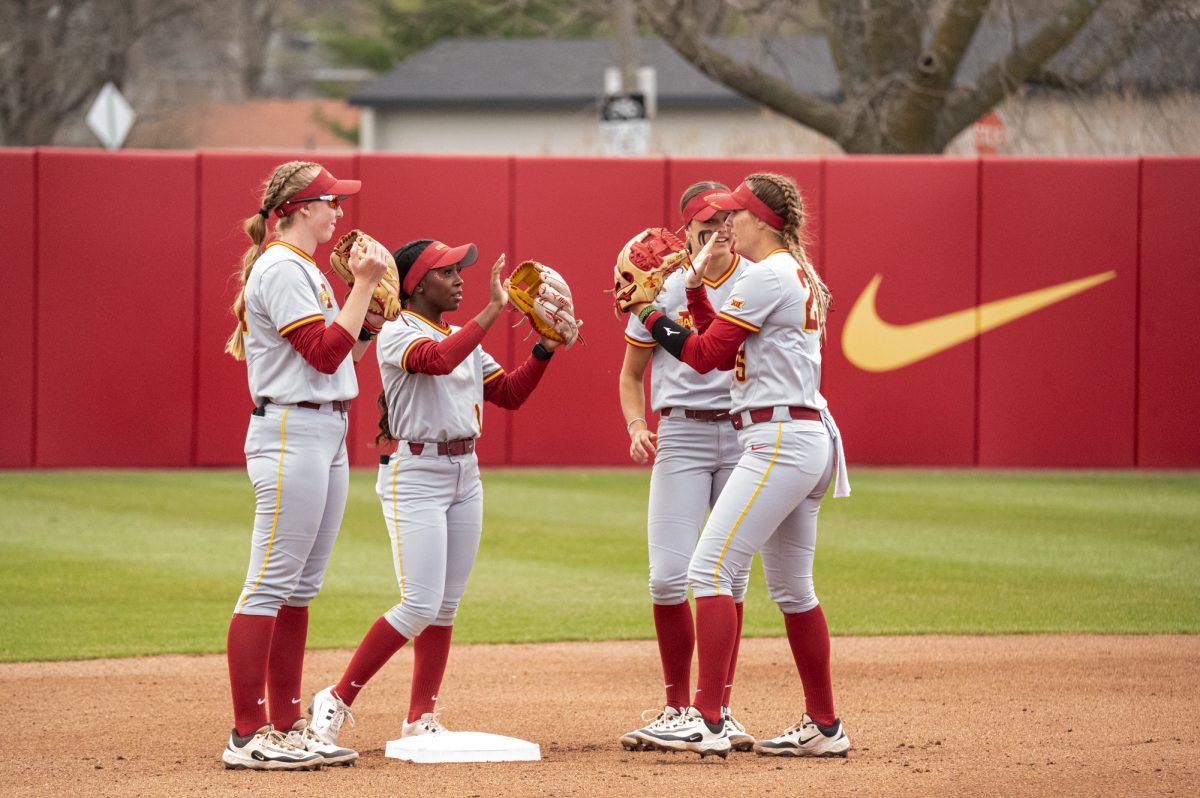GPSS talks conference, peer mentor program
Jessica Darland/Iowa State Daily
GPSS members were encouraged by English senior lecturer Christopher Nelson to support the Graduate Peer Mentor Program in which grad students can go get help on any research paper they are working on.
January 27, 2015
The Graduate and Professional Student Senate had its first meeting of the semester Jan. 26.
Though no new bills made for a relatively brief meeting, a new graduate program and updates on the upcoming graduate research conference were presented to the senate.
Christopher Nelson, senior lecturer in English, spoke to GPSS about the Graduate Peer Mentor Program, which has been made available to help graduate students with their writing process.
Nelson presented a 2013 survey showing both faculty and students agreed that graduate students needed help with their writing.
“We realized there is very little institutional support for graduate students,” Nelson said.
The data showed more than three-fourths of faculty agreed that graduate writers would benefit from working with a general English tutor. However, time is not something faculty has to give these students.
“There’s a great deal of time that faculty don’t have to speak with you,” Nelson said.
This led Nelson and Elena Cotos, director of the Academic Communication Program, to create the mentor program, giving graduate students the chance to work with each other and critique their writing.
The Graduate Peer Mentor Program will offer graduate student support in the form of working with other graduate students with writing and speaking experience.
“Academia can often be its own language,” Nelson said.
Graduate students can have their writing critiqued at any stage of the writing process and can work with four different kinds of writing consultants to develop their writing skills.
Disciplinary, genre, English and communication consultants will all be available to students whose departments are participating in the program.
“We are not yet open to everyone across the disciplines,” Nelson said.
Food sciences and human nutrition, agriculture and biosystems engineering, mechanical engineering and human development and food sciences are the only departments currently involved in the program.
Nelson encouraged senate members to go back to their colleges and request more information to gain more support and funding for the program, in the hopes that the program will grow.
Senators Ruchir Goswami and Misty Spencer provided updates to the Graduate Professional Student Research Conference, which is supported in part by GPSS.
Goswami described the upcoming conference as “a platform for all graduate students to present their research in a relaxed environment.” The conference was created as a way to prepare graduate students for conferences of their own without the pressure of having to present to an unfamiliar crowd.
“This year, we are trying to accommodate a higher number of students,” Goswami said. “We were able to get many more faculty judges who volunteered this year.”
After the success of last year’s conference, which was also Iowa State’s first, GPSRC has prepared for a larger turnout.
Peter Freeman, the founding dean of Georgia Tech’s college of computing and Adam Ruben, microbiologist and humorist, will both be presenting at the conference April 2.
Spencer announced workshops that will be available at the conference include “how to get a job in industry,” “how to write an excellent research and teaching statement” and “negotiating your first faculty offer.”
“We have other ways to get involved with poster presentations, three-minute thesis presentations and oral presentations,” Spencer said. More information and opportunities for involvement can be found on the GPSRC website.
Both he and Spencer, co-chairs of GPSRC, encouraged the senate to spread the word about the conference, as there is currently a low number of abstract submissions. “We need your help in getting the word out,” Goswami said.
The senate will have its next meeting Feb. 23.


